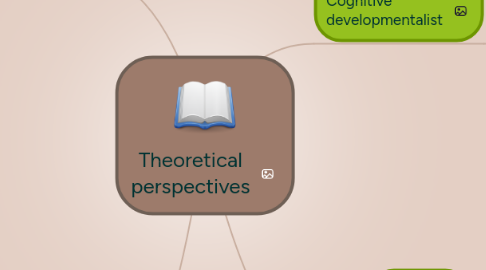
1. Interactionist
1.1. Vygotsky Bruner Halliday
1.1.1. Vgotsky: the development of language is influenced by own's society.
1.2. Interactionists focus on nurture
1.3. Focuses on sociocultural interactions and it's role on language development and knowledge.
1.4. Children learn language due to their attempts to communicate to the world in which they live.
1.4.1. There is a need to know language to function in a society
1.5. Focuses on the process of language development
2. Behaviorist
2.1. Skinner
2.1.1. Reinforcement through attention, repetition, and approval of a child's responses to language is how language is acquired. (Operant Conditioning)
2.2. Emphasizes contributions of nurture
2.3. Children can be taught anything, and learning occurs from associations that are created between stimuli, responses, and what happens after the response behavior.
2.4. Modeling and imitation are ways in which language develops in children.
2.5. Positive and negative reinforcements in environment mold the language development.
3. Cognitive developmentalist
3.1. Piaget
3.1.1. Stages of cognitive development
3.1.1.1. 1. Sensorimotor stage (Birth-2 years)
3.1.1.1.1. Children's understanding of environment comes from experiences and activities only.
3.1.1.1.2. Object permanence begins, when children are aware that when an object isn't visible it is still there.
3.1.1.1.3. Language begins after children use symbols to refer to objects
3.1.1.1.4. Around age 1, schemeta are formed, which is organization based on relationships between actions and objects.
3.1.1.2. 2. Preoperational stage (2-7 years)
3.1.1.2.1. Children start to use words, drawings, and images to express themselves.
3.1.1.2.2. Children begin thinking mostly about their own perceptions, and as cognitive structures develop they gain logical thinking.
3.2. Cognitive development is the foundation for language acquisition, and must occur first.
3.3. Emphasizes the contributions of nature to language development
4. Nativist
4.1. Chomsky
4.1.1. Universal grammar, which is the rule system for the way to use language.
4.1.1.1. explains how humans can learn any language, and are not made to learn one over the other, it depends on culture to define specific language acquisition.
4.1.2. The ability to acquire language is due to the cognitive structures that process language differently from other stimuli.
